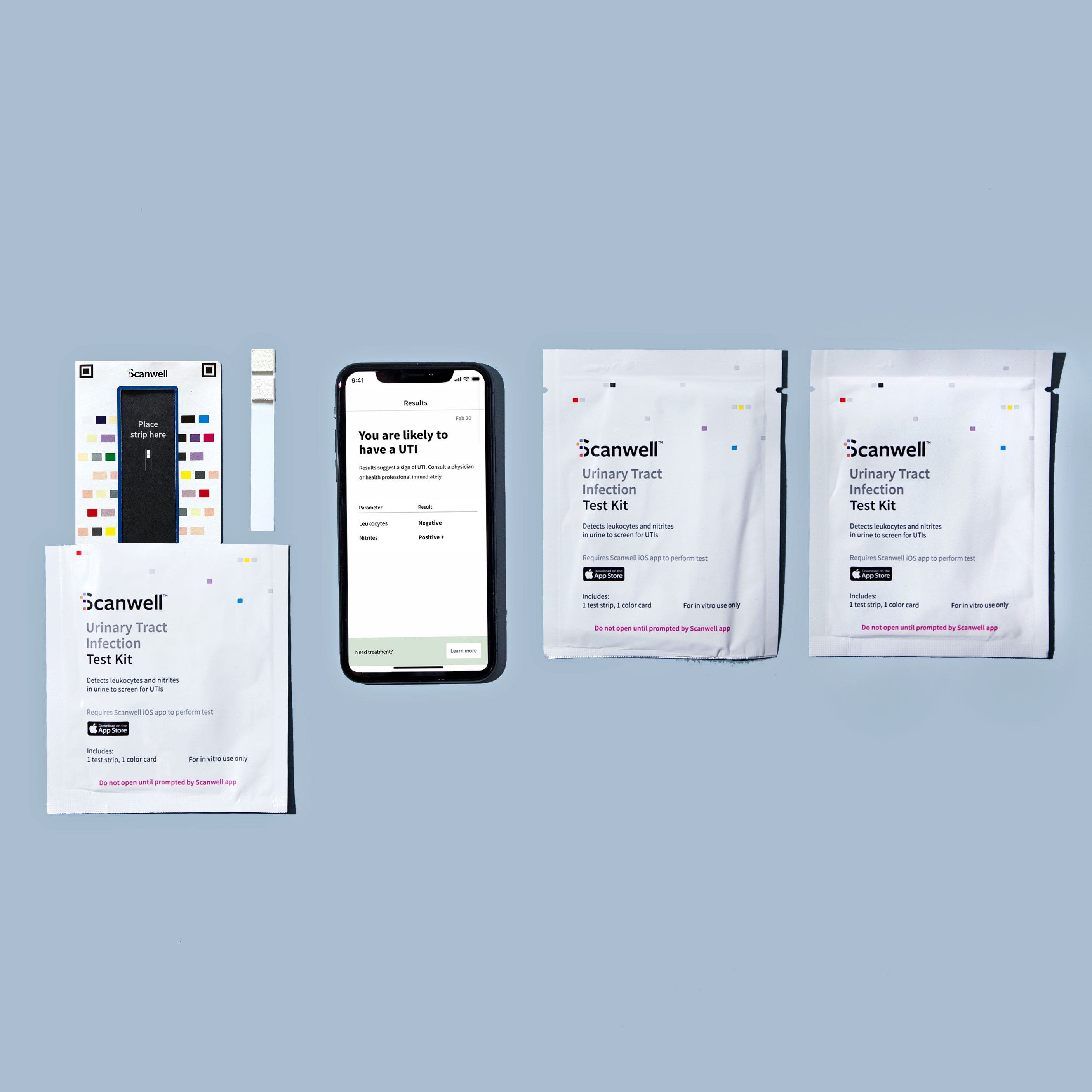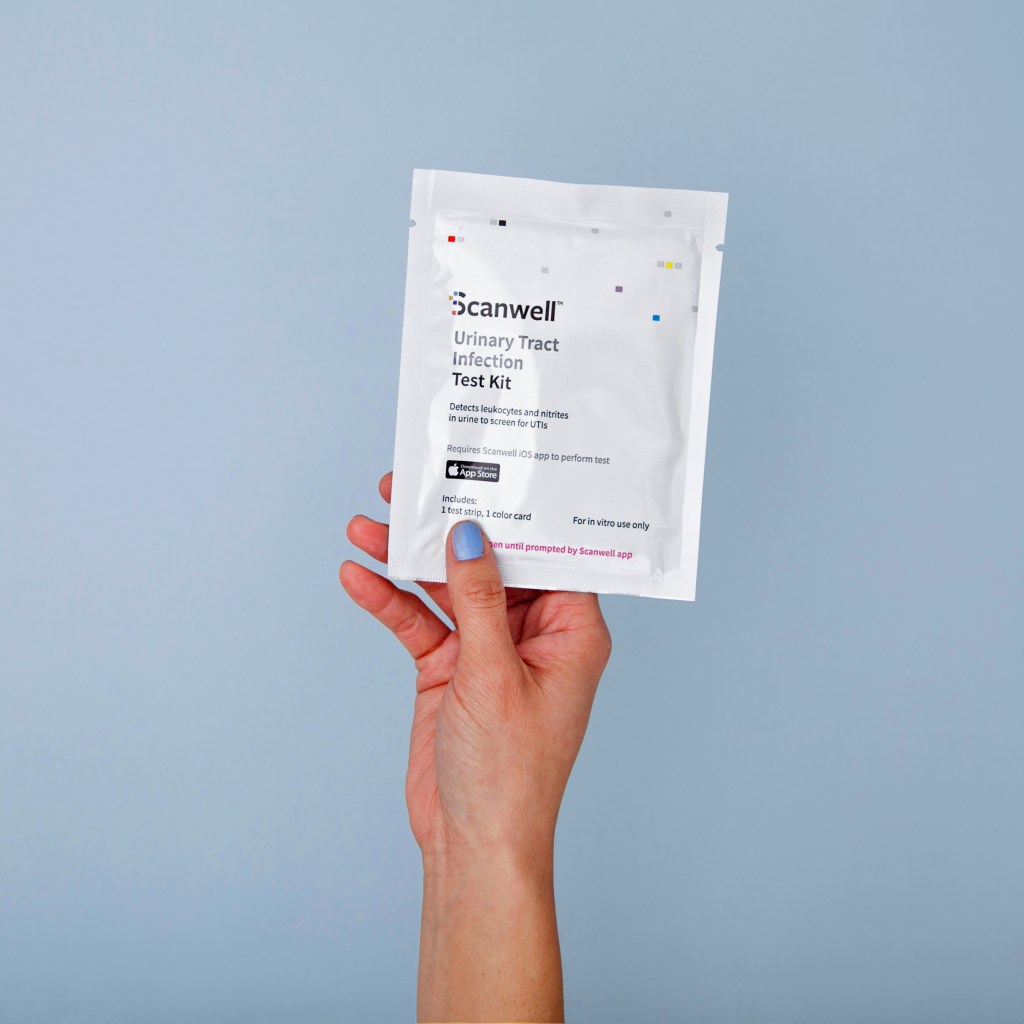Companies continue to refine digital diagnostic tools for in-home healthcare at a rapid clip. The latest to launch is an at-home test for urinary tract infections from the Los Angeles-based startup Scanwell Health.
The company was founded by Stephen Chen, who literally grew up in the diagnostics testing business. His family had built one of the largest manufacturers of urinalysis testing in the country and Chen’s earliest memories of work are standing on an assembly line putting together pregnancy tests.
“I come from a family that manufactures pee-tests,” says Chen. “I was born into the business.”
Through this window into the market, Chen knew that there was a way to circumvent the time-consuming process of booking a doctor’s visit to get a test scheduled and performed. “These tests have been sold into doctors’ offices and hospitals and I always thought you could make these tests more accessible,” says Chen.
Working with a team of technologists, Chen built a software product that can provide the same analysis of a test kit using a smartphone’s camera and an app that would have been performed in a brick and mortar diagnostics testing facility.
“The core chemistry is a traditional diagnostics kit that has been used by the healthcare system for many years,” he says. “We’ve taken that standalone box and moved it to the smartphone.”
Just like a traditional test, a chemically treated strip reacts with a urine sample, then the company’s application uses computer vision technology to assess the results.

So far, Scanwell is the first company to receive clearance from the Food and Drug Administration for its tests, and the only company to receive clearance to be sold over the counter, according to Chen.
Through its partnership with Lemonaid Health, a telemedicine provider for consultations with nurse practitioners and physicians, customers can get diagnosed using the Scanwell app and receive a consultation and a course of treatment all from the comfort of their home. The tests cost $15 for a pack of three and the consultation with Lemonaid is another $25. That’s compared with roughly $150 for a visit to an urgent care center.
For Scanwell, it’s the culmination of a three-year journey to bring their first diagnostic test to market. The company first submitted its product to the Food and Drug Administration for approval in 2015. While Chen waited for clearance from the FDA, he launched Petnostics to build out a user base and test the product in the less stringent world of veterinary health.
Sales from the Petnostics product helped bootstrap the company through its first few years of development and get its first product onto the market. Now, Scanwell is ready to expand, says Chen.
The company has a test for chronic kidney disease in the works through a collaboration with Kaiser Permanent and the Chronic Renal Insufficiency Cohort Study to improve screening for and monitoring of chronic kidney disease at home. Using urinalysis testing to screen for excess proteins, the company is hoping it can help identify CKD in more people earlier, allowing for earlier interventions and the potential to avoid costly medical procedures down the road.
“We believe in the power of telehealth and what it can do,” says Chen. “What’s missing is the diagnostics piece. When you go into a doctor’s office you talk to a doctor and they get your symptoms. We’re focused on translating as many of these diagnostics as possible and you can pair with telehealth.”
Helping the company move along its journey are a clutch of well-positioned investors, including the Y Combinator accelerator and institutional investors like Founders Fund, Mayfield, DCM, Version One and Joe Montana’s Liquid 2 Ventures fund.
“This funding from an incredible group of investors, together with the national launch of our test and app, are exciting milestones that will allow us to realize our vision of making reliable, convenient at-home testing available to millions of people,” said Chen, in a statement. “Our partnership with Lemonaid is only the beginning. We have a number of additional diagnostic tests in the pipeline that have the potential to change the way we diagnose and treat infections and monitor chronic diseases. We look forward to working with additional partners to bring these tests to people across the country.”
































Comment